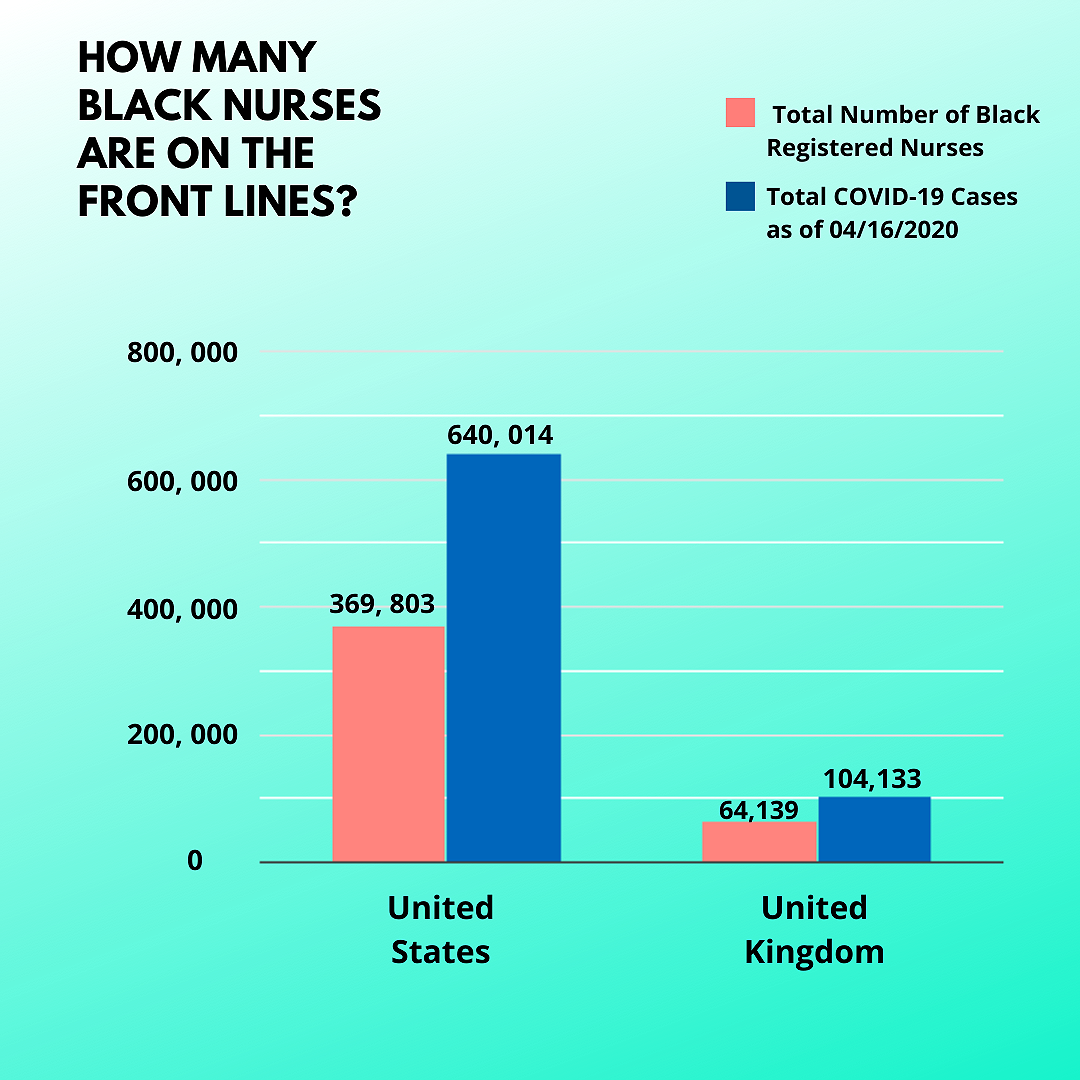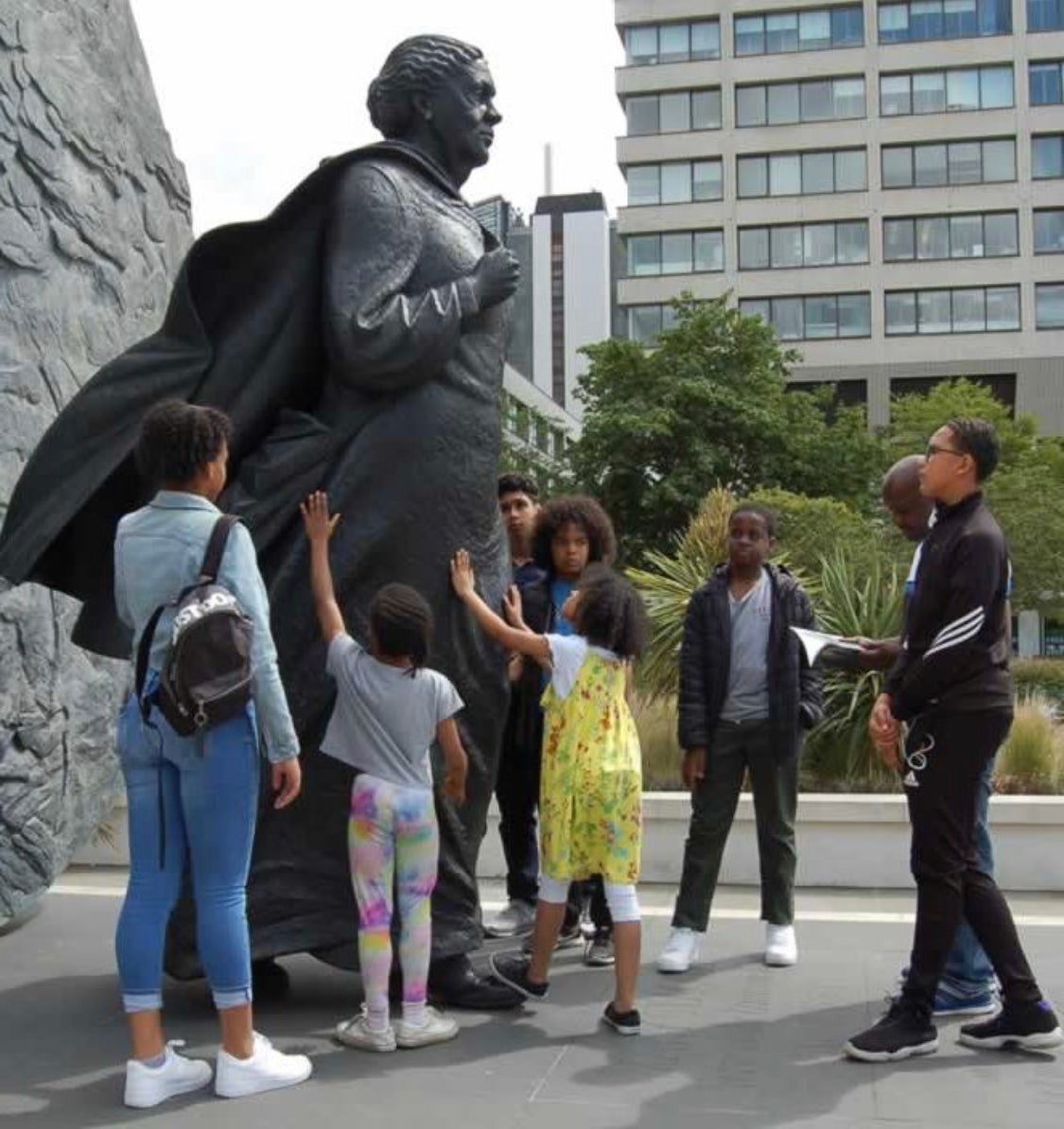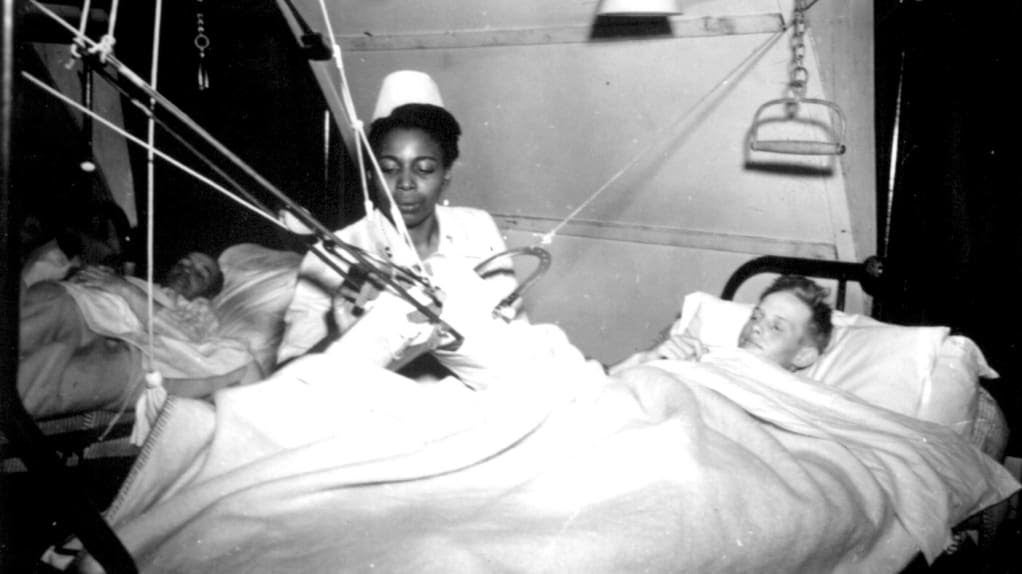As COVID-19 continues to devastate Black communities, Black nurses will be pivotal to helping those infected.
Not only will they be on the frontlines at great risk (with no guarantee of protective gear, due to global demand), Black nurses will be absolutely critical to ensuring that communities are healthy. In many ways, the global economy is also impacted by their willingness to serve, as the ability of two of the world’s financial capitals—New York and London—to bounce back quickly depends, in large part, on their labor.
The data visualization below highlights exactly how many Black registered nurses (RNs) work in the United States and the United Kingdom.

The data for Black American RNs was sourced from the U.S. Bureau Labor of Statistics (last updated in May 2019). Black RNs make up 12.4% of all nurses in the United States. This number does not include nurse practitioners, anesthetists, or midwives; they are classified separately from RNs by the U.S. Bureau Labor of Statistics. For the purpose of this data visual, they were not added to the cumulative number of nurses because they don’t always work in places where RNs would normally manage intake of COVID-19 patients. That being said, 12.2% of all nurse practitioners in the U.S. are Black.
In the United Kingdom, Black nurses make up 9.9% of all RNs, according to the Nursing & Midwifery Council (NMC). In their annual Equality Diversity and Inclusion report for 2018-2019, “Mixed” whether with “Black African” or “Black Caribbean” was classified and counted separately. However, for this data visual, “Mixed” was also added to the total of Black RNs in the UK. Similar to the U.S. data, midwives and nurse practitioners were not counted. Technically, the UK health system does not consider “nurse practitioner” an official job title, just an advanced form of practice.
This graph also compares the current rate of COVID-19 cases (sourced from Johns Hopkins University’s Coronavirus Resource Center) to the actual number of Black RNs in each country. This was done to show how critical the work of Black nurses will be to “flattening the curve.” Particularly, when you consider that prior to the COVID-19 pandemic, both the United States and the United Kingdom were facing nursing shortages.
The U.S. Bureau of Labor Statistics projects the need for 203,700 new RNs each year through 2026–while in England, there are currently over 40,000 nursing vacancies.

Historically, Black nurses have played a critical role in establishing healthcare standards, helping soldiers, and stopping diseases. In 1855, after finding out the nursing and care system had collapsed, Mary Seacole came from Jamaica (by way of London) to nurse British soldiers during the Crimean War. This is after Seacole stopped cholera in Panama and the spread of yellow fever in Jamaica. For her efforts, Seacole was given a medal, but never received the same level of recognition as Florence Nightingale who became infamous during the same war. Nightingale is credited as the founder of modern-day nursing, but is on record for shunning Seacole’s work and knowledge during the Crimean War. The National Health Service, the UK’s public health system was built in 1948 thanks to post-war nursing shortages largely filled by the Windrush generation; Caribbean and African immigrants who started docking into England aboard the Empire Windrush ship.

In the United States, Black nurses were banned from the Army, Navy, American Red Cross, major teaching hospitals, and the American Nurses Association. During World War II, Black nurses who volunteered to serve their country, were only allowed to assist German prisoners of war. Despite the prejudice, Black nurses from Sojourner Truth to Goldie D. Brangman (who kept Dr. Martin Luther King Jr. breathing when he was stabbed) pushed forward. In the midst of COVID-19, rationed protective equipment, and extreme staffing shortages, Black nurses will continue to care.







May the world take notice.
—
ESSENCE is committed to bringing our audience the latest facts about COVID-19 (coronavirus). Our content team is closely monitoring the developing details surrounding the virus via official sources and health care experts, including the World Health Organization (WHO), the Centers for Disease Control and Prevention (CDC) and the Occupational Safety and Health Administration (OSHA). Please continue to refresh ESSENCE’s informational hub for updates on COVID-19, as well as for tips on taking care of yourselves, your families and your communities.

